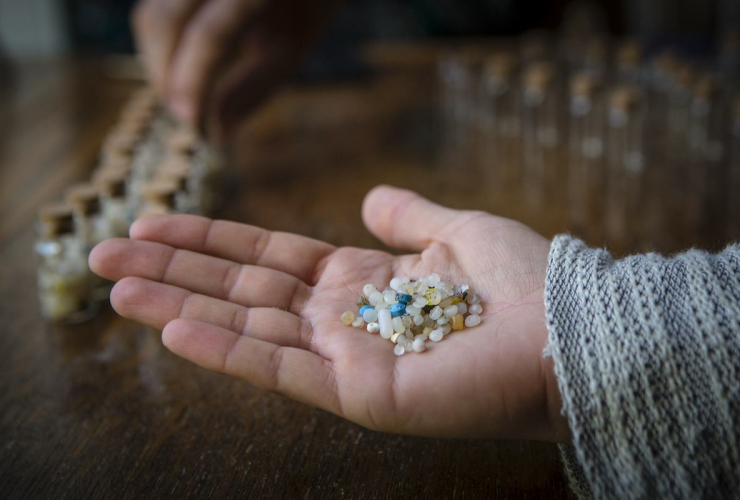Marc Fawcett-Atkinson

Journalist | Vancouver |
English
French
About Marc Fawcett-Atkinson
Marc Fawcett-Atkinson is a reporter and writer covering food systems, climate, disinformation, and plastics and the environment for Canada’s National Observer.
His ongoing investigations of the plastic industry in Canada won him a Webster Award's nomination in environmental reporting in 2021. He was also a nominee for a Canadian Association of Journalists's award for his reporting on disinformation.
Marc has previously written for High Country News, the Literary Review of Canada, and other publications on topics exploring relationships between people and their social and physical environments.
He holds an M.A. in journalism from the University of British Columbia and a B.A. in Human Ecology from the College of the Atlantic.
Feds stand firm on toxic ruling as Big Plastic threatens lawsuit
The $35-billion plastics industry’s threat of legal action against Canada's efforts to rein in harmful plastic pollution will go nowhere, the federal government and environmental advocates say.
Will Canada support a global plastic pollution treaty?
Over 40 leading Canadian researchers signed a letter this week urging Canada to support efforts to create a global UN treaty to address plastic pollution. About two-thirds of countries globally and several major food and beverage companies have indicated support for the approach.
Why is this man raising bugs in his living room?
The first batch of baby crickets moved into Matt Muzzatti's living room when the pandemic hit last year, and he’s been adding more ever since.
Online retail — and Amazon — has a plastic problem
Amazon’s investors could soon force it to reveal how much plastic it mails to customers around the world each year.
Canada just listed plastic as toxic. Now what?
Plastic may now be considered toxic under Canada’s environmental law, but the hard work of reducing single-use plastics and improving recycling still lies ahead.
Canada officially tosses plastic in the 'toxic' substances bin
Plastic is now considered toxic under Canada’s primary environmental law — the Canadian Environmental Protection Act — the Trudeau government announced Wednesday.
On the Skeena, regenerative farming is feeding food security
Years ago, the grandparents of Ando’ohl lax̱ ha (Nathan Combs) had fed friends and family from potato fields and smokehouses on a plot of land they tended by the Skeena River about 150 kilometres northeast of Terrace. Combs, who is Gitxan, wanted the land, which had been dormant for years, to again bolster his community’s food security.
Can online grocery orders end hunger?
Dan Gillis’s grocery dollars are bucking the trend. Instead of fuelling profits for a chain supermarket, Gillis is ordering food from a non-profit online food delivery service and helping his less well-off neighbours afford food.
Why does Canada’s law on toxic chemicals leave out pesticides?
Pesticides harmful to people and the environment will be exempt from a proposed overhaul to Canada’s primary environmental law that will impose more stringent guidelines on most toxins.
So small, yet so deadly. Investors force plastic industry to reveal pollution
Investors are forcing the world’s biggest plastic manufacturers to reveal how many harmful plastic pellets they are leaking into rivers, lakes and oceans worldwide.










